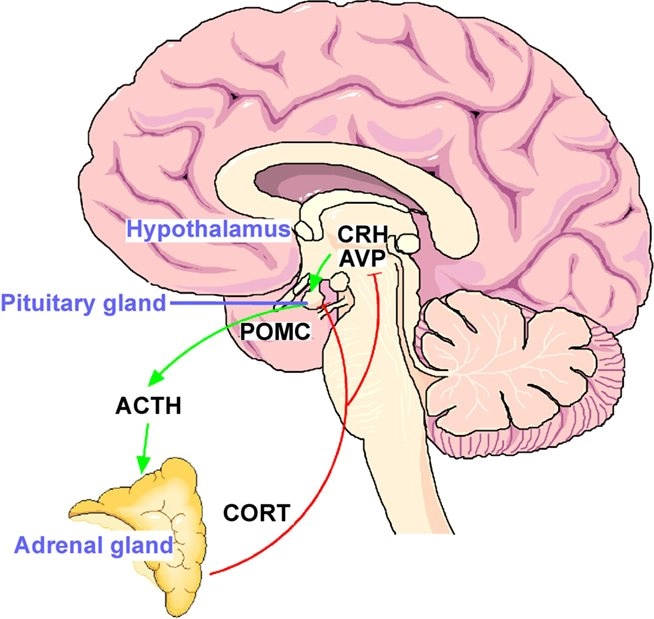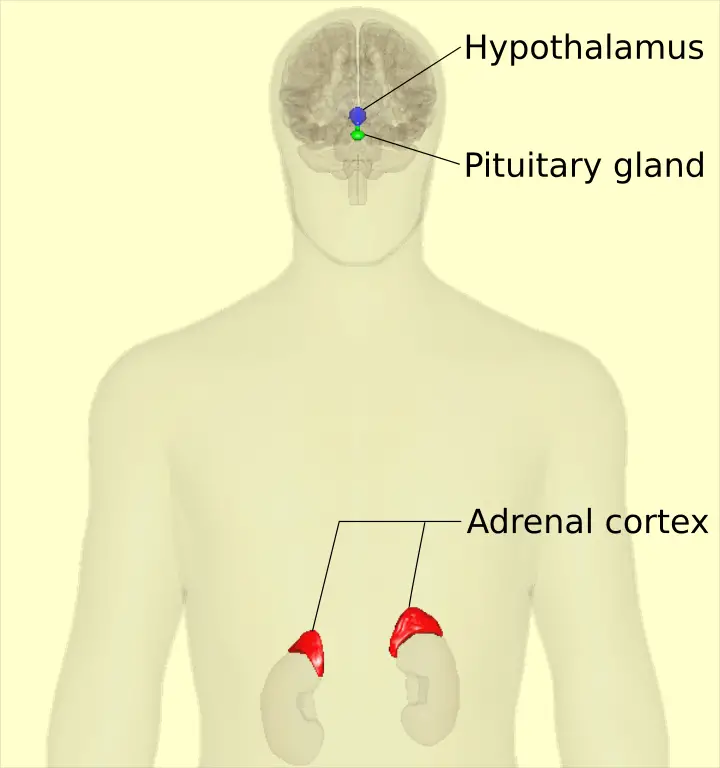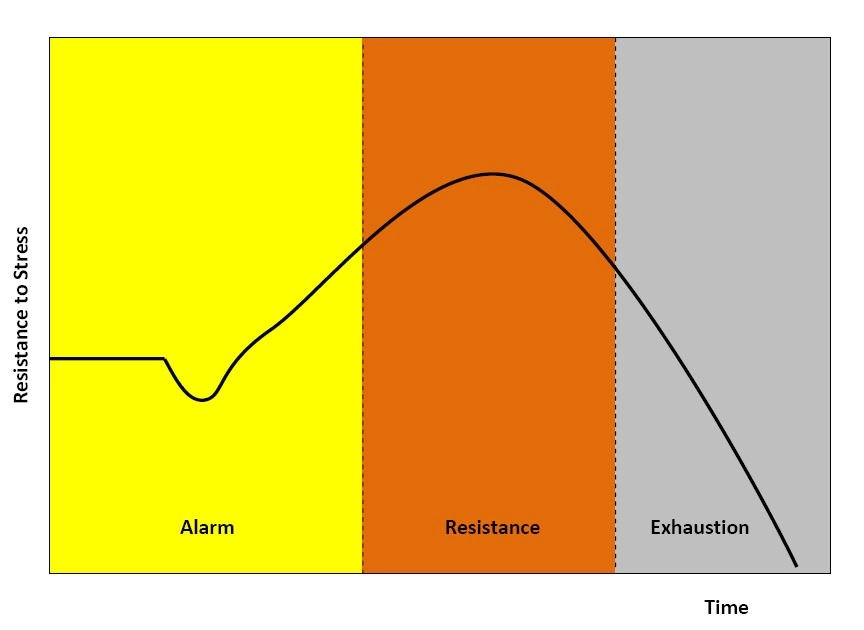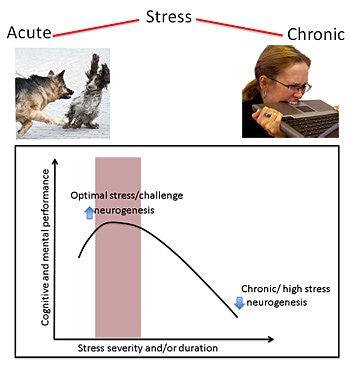99 Proven Ways To Lower Cortisol And Reduce Stress (Backed By Science)
We live in a stressed-out culture. Most people are chronically stressed. Chronic stress leads to high levels of cortisol (the stress hormone) that kills people slowly.
However, the last thing you want is to be stressed about is being too stressed. So in this article, I’ll share with you the best science-backed ways to lower your cortisol levels through lifestyle, habits, foods, herbs, and supplements.
First, let’s start with a surprising fact. According to Occupational Health and Safety news and the National Council on compensation of insurance, up to 90% of all visits to primary care physicians are for stress-related complaints (1).
So you can imagine how important and widespread the problem is. If you don’t take care of stress (your cortisol levels), it could lead to deadly consequences. You don’t have to take my word for it. Keep reading to let science give you the facts about cortisol and how to lower it.
Table Of Contents
What Is Cortisol (Cortisol Definition)
What Does Cortisol Do? (Cortisol Function)
High Cortisol Levels Symptoms (Effects Of Cortisol)
How To Reduce Cortisol Levels Naturally
1. Lifestyle Factors That Reduce Cortisol
2. Natural Foods That Reduce Cortisol
3. Herbs And Supplements To Reduce Cortisol
What Is Cortisol? (Cortisol Definition)
Cortisol (aka the stress hormone) is a hormone secreted by the adrenal gland in response to perceived stress. The secretion happens on the signal of the hypothalamus and pituitary gland (2). This process activates the fight-or-flight response to help us survive.

Whenever the brain perceives stress, the hypothalamus releases corticotropin-releasing hormone (CRH) which activates the pituitary glands. The pituitary gland then releases adrenocorticotropic hormone (ACTH) which is carried by the blood to the adrenal gland. On receiving the signal, the adrenal gland releases cortisol to help the body deal with the stress. The whole system is known as the HPA axis (named after the organs) (3).

When the HPA axis is activated for the short-term, the release of cortisol helps us deal with potential threats. But the problem today is that our HPA axis is constantly activated because of the stress of the modern world.
What Does Cortisol Do? (Cortisol Function)
While acute stress can be a life saver, chronic stress is a real killer.
Acute stress (also known as eustress) is the good stress that helps you perform at your peak (4) and boosts your immune system (5).
Chronic stress (also known as distress is the root cause of many diseases that can kill you.
According to Hans Selye’s General Adaptation Syndrome Model, there are three stages of the stress response:
1. Alarm Phase
Eustress (the good stress) helps us deal with an immediate threat. It acutely increases cortisol, epinephrine, adrenaline, heart rate, blood pressure, breathing rate, strength, and release of sugar from the liver to provide fuel.
2. Resistance Phase
Long-term stress has the same effects, but the symptoms persist chronically. It gives rise to some additional symptoms like muscle tension, abnormal blood sugar, irregular blood pressure, and suppressed immune system.
3. Exhaustion Phase
This is when the body can’t cope with long-term stress and gives up. It can lead to several diseases and even death.

So how do you find out if you have high cortisol levels? I’m glad you asked.
High Cortisol Levels Symptoms (Effects Of Cortisol)
High cortisol levels over a long period of time can cause a lot of damage to your psychological and physiological well-being. It even has a term — it’s called Cushing’s syndrome or Cushing’s disease. If it persists long enough, it can even give rise to deadly health conditions.
Here are the symptoms and effects of high cortisol levels:
- Impaired brain function — learning, memory, cognition, concentration, Alzheimer’s, Dementia (6, 7, 8, 9, 10, 11, 12, 13, 14, 15, 16, 17, 18, 19, 20, 21, 22, 23, 24, 25, 26, 27, 28, 29, 30, 31)
- Depression, anxiety, mood disorders and other mental illnesses (32, 33, 34, 35, 36, 37, 38, 39, 40, 41, 42, 43, 44, 45, 46, 47)
- A weakened immune system (getting sick often) (48, 49, 50, 51, 52, 53, 54, 55, 56, 57)
- Weight gain (especially in the face and abdomen) (58, 59, 60, 61, 62, 63, 64, 65, 66, 67)
- Eating disorders (68, 69, 70, 71, 72, 73, 74)
- Digestive and gut problems (75, 76, 77, 78, 79, 80, 81)
- Cardiovascular problems and heart disease (82, 83, 84, 85, 86, 87, 88)
- Infertility and decreased libido (89, 90, 91, 92, 93, 94)
- High blood pressure (hypertension) (95, 96, 97, 98, 99)
- Weak bones and osteoporosis (100, 101, 102, 103, 104, 105)
- Headaches (106, 107, 108, 109)
- Body aches and pains (increased inflammation) (110, 111, 112, 113)
- Cancer (114, 115, 116)
- Blood sugar problems and diabetes (117, 118, 119)
- Muscle breakdown (120, 121, 122)
- Chronic pain (123, 124)
- Sleep disorders or disturbances (125, 126)
- Slow wound healing (127, 128)
- Irregular periods (129, 130)
- Acne and other skin conditions (131)
- Substance misuse and addiction (132)
- Impulse control disorders (133)
Note: You can also use Everywell Stress Test at home to test your cortisol levels.
[mailerlite_form form_id=14]How To Reduce Cortisol Levels Naturally
The good news is that it’s not too late to lower your cortisol levels. Stress management may seem like another chore, but it’s the one you must prioritize if you don’t want to suffer the consequences of high cortisol levels due to chronic stress.
Lifestyle Factors That Lower Cortisol
Here are the best scientifically proven lifestyle changes and biohacks you can use to reduce cortisol and manage stress:
- Meditation and Mindfulness (134, 135, 136, 137, 138, 139, 140, 141, 142, 143, 144, 145, 146, 147, 148, 149, 150, 151, 152, 153, 154, 155, 156, 157, 158, 159, 160, 161, 162, 163)
Note: You can use tools like HeartMath, Muse headband, and Zen12 to enhance your meditation experience.
- Good sleep and napping (164, 165, 166, 167, 168, 169, 170, 171, 172, 173, 174, 175, 176, 177, 178, 179, 180)
Note: You’ll find resources to help you sleep better in the health section of my recommended tools page.
- Changing your perspective and mindset, staying positive, using reappraisal, managing thoughts, staying calm, practicing forgiveness, being resilient and vulnerable (181, 182, 183, 184, 185, 186, 187, 188, 189, 190, 191, 192, 193, 194, 195)
- Aromatherapy (including saffron, rose, lavender, bergamot, and orange essential oil) (196, 197, 198, 199, 200, 201, 202, 203, 204, 205, 206, 207, 208)
- Social support, human touch, good relationships or anything that induces oxytocin (209, 210, 211, 212, 213, 214, 215, 216, 217, 218, 219, 220, 221, 222)
- Moderate exercise (223, 224, 225, 226, 227, 228, 229, 230, 231, 233, 234, 235, 236)
- Music (237, 238, 239, 240, 241, 242, 243, 244, 245, 246, 247, 248)
- Enjoyable pastimes, leisure and creative expressions like playing music, drawing, reading, arts and crafts, home repairs, coloring, knitting, dancing, making art (249, 250, 251, 253, 254, 255, 256, 257, 258, 259, 260)
- Deep breathing (261, 262, 263, 264, 265, 266, 267, 268, 269, 270)
- Yoga (271, 272, 274, 275, 276, 277, 278, 279, 280)
- Pets (281, 282, 283, 284, 285, 286, 287)
- Time in nature (288, 289, 290, 291, 292, 293, 294, 551)
- Laughter (295, 296, 297, 298, 299)
- Spirituality (300, 301, 302, 303)
- Tai chi (304, 305, 306)
- Massage (including hand massage) (307, 308, 309)
- Chewing (310, 311, 312)
- Guided Imagery (examples: here, here, here and here) (313, 314, 315)
- Biofeedback (316, 317, 318)
- Gardening (319, 320)
- Optimal testosterone levels (321, 322)
- Bright light therapy (like this) (323, 324)
- Autogenic training (examples: here and here) (325, 326)
- Progressive muscle relaxation (examples: here, here and here) (327, 328)
- Repetitive transcranial magnetic stimulation (rTMS) (329, 330)
- Tapping or Emotional Freedom Technique (ETF) (example: here) (331, 332)
- Release of endorphins (333)
- Hypnosis (examples: Hypnosis Live and eHypnosis) (334)
- Power posing (335)
- Vagus nerve stimulation therapy (336)
- Pulsed electromagnetic field therapy (PEMF) (337)
- Transcranial direct current stimulation (tDCS) (338)
- Electroacupuncture (like this) (339)
Studies have also found some things that can raise your cortisol levels:
- Multitasking (340, 341, 342)
- Physical stress (too much exercise) (343, 344)
- Noise (335, 336)
- Procrastination (337)
- Frequent phone and emails exposure (338)
- Fluorescent lights (339)
- Psychological stress (340)
- Chronic pain (341)
- Long commutes (342)
Natural Foods That Reduce Cortisol
You may underestimate the impact of food on your mind and body, but what you eat makes a huge difference. It not only impacts your mood, but it can also affect your cortisol levels.
Here are some science-backed foods that can lower cortisol:
- Green tea (the active compound called L-Theanine), black tea or oolong tea (343, 344, 345, 346, 347, 348, 349, 350, 351, 352, 353, 354, 355, 356, 357, 358, 359, 360, 552)
- Omega 3s (found in fish, algae, chia seeds, flax seeds, walnuts, etc.) (361, 362, 363, 364, 365, 366, 367, 368, 369, 370)
- Magnesium (found in spinach, seeds, nuts, beans, cocoa, avocado, yogurt, banana, etc.) (371, 372, 373, 374, 375, 376, 377, 378)
- Vitamin C (found in guava, kiwi, bell peppers, strawberries, orange, papaya, broccoli, tomato, kale, etc.) and a combination of Vitamin C and Vitamin E (found in seeds, nuts, avocado, spinach, squash, kiwi, broccoli, etc.) (379, 380, 381, 382, 383, 384, 385, 386)
- Probiotics (found in fermented foods like sauerkraut, yogurt, kefir, kimchi, tempeh, miso, kombucha, pickles, buttermilk, natural cheeses, etc.) (387, 388, 389, 390, 391, 392, 393)
- Antioxidants such as Flavonoids and Anthocyanin (found in cocoa, tea, nuts, berries, vegetables, etc.) (394, 395, 396, 397, 398, 399)
- Dark Chocolate or cocoa (400, 401, 402, 403, 404)
- Vitamin B-complex (found in fish, meat, poultry, organ meat, leafy greens, eggs, dairy, legumes, seeds, etc.) (405, 406, 407)
- Zinc (found in meat, tofu, poultry, seeds, lentils, oats, mushroom, yogurt, etc.) (408, 409, 410)
- Prebiotics (found in garlic, onion, leeks, banana, apple, asparagus, oats, flaxseed, cocoa, etc.) (411, 412, 413)
- Vitamin A (found in sweet potato, carrot, squash, spinach, melon, lettuce, red bell pepper, broccoli, etc.) (414, 415)
- Water (416, 417)
- Black Seed (418)
- Garlic (419)
- Olive oil (420)
- Blueberries (421)
- Goji berries (422)
- Yogurt (423)
- Bromelain (found in pineapple) (424)
- Moderate healthy carbs (found in sweet potato, beans, lentils, fruits, oats, etc.) (425)
- L-Tryptophan (found in seeds, nuts, soy, cheese, meat, poultry, fish, oats, beans, lentils, eggs, etc.) (426)
- L-Tyrosine (found in meat, fish, poultry, tofu, dairy, beans, seeds, etc.) (427)
- L-Lysine and L-Arginine (found in meat, poultry, nuts, seeds, legumes, dairy, tofu, etc.) (428)
- Lactium (found in dairy) (429)
Now here are a few things to avoid in your diet if you don’t want your cortisol level to raise:
- Too much caffeine (430, 431, 432, 433, 434)
- Calorie restriction or poor diet (435, 436, 437)
- High sugar intake (438, 439, 440)
- Alcohol (441, 442)
- Overeating (443, 444)
- Obesity (445)
- Excess sodium (446)
- Protein/Leucine restriction (447)
- Habitual smoking (448)
- Frequent cannabis use (449)
Herbs And Supplements To Reduce Cortisol
There are also supplements you can take to reduce your cortisol levels on demand.
Here are some of the best supplements with natural ingredients (including herbs) that can lower cortisol:
- Phosphatidylserine (450, 451, 452, 453, 454, 455, 456, 457, 458, 459, 460, 461)
- Rhodiola Rosea (462, 463, 464, 465, 466, 467, 468, 469, 470)
- Ashwagandha (471, 472, 473, 474, 475, 476, 477, 478)
- Schisandra (479, 480, 481, 482, 483, 484, 485)
- Ginseng (486, 487, 488, 489, 490, 491)
- Curcumin (found in turmeric) (492, 493, 494, 495, 496)
- Holy Basil (497, 498, 499, 500, 501)
- Valerian (502, 503, 504, 505, 506)
- Gamma-aminobutyric acid (GABA) (507, 508, 509, 510, 511)
- Bacopa (512, 513, 514, 515)
- Lemon Balm (516, 517, 518)
- Kava (519, 520, 521)
- Ginkgo Biloba (522, 523, 524)
- Chamomile (525, 526)
- Cordyceps (527, 528)
- Magnolia Bark (529, 530)
- Tongkat Ali (531)
- Chromium (532)
- 5-hydroxytryptophan (5-HTP) (533)
- Hops (534)
- Chinese Skullcap (535)
- Alpha-GPC (536)
- N-Acetyl-Cysteine (537)
- Tribulus (538)
- Astragalus (539)
- N-acetyl Cysteine (NAC) (540)
- SAM-e (541)
- Pyridoxal 5-Phosphate (P5P) (542)
- Gotu Kola (543)
- Mucuna Pruriens (544)
- St. John’s Wort (545)
- Pyrroloquinoline Quinone (PQQ) (546)
- Dehydroepiandrosterone (DHEA) (547)
- Betaine (548)
- Sceletium Tortuosum or Zembrin (549)
- Passionflower (550)
Where do you buy all of that? You don’t have to buy every cortisol blocker out there. If you load up on the essential vitamins and minerals, you’re good to go. But if you’re someone who gets overwhelmed often, you can consider adding supplements that contain a mix of compounds mentioned above. They will specifically target cortisol and bring it down. Start with this list of supplements:
- Magnesium Breakthrough or Sunwarrior Magnesium Liquid
- Krill Oil or Krill Oil by Onnit or Sunwarrior Omega 3 Vegan or ATP Lab Omega Pure
- Turmeric & Ginger or Curcumin or Curcumin by Bulk Supplements
- Garlic Extract
- Ginkgo Bibola
- Rhodiola Rosea
- Active B Complete
- Vitamin C
- Zinc
- DHEA
- 5-HTP
- NAC
- GABA
- Tribulus
- Holy Basil Extract
- St John’s Wort
- Lecithin Powder (Phosphatidylserine)
- L-Tryptophan
- L-Tyrosine
- Green Tea Extract or L-Theanine
- Rasa (a mix of different adaptogenic herbs mentioned above)
- Stress Support (includes Chamomile, L-Theanine, Lemon Balm, Valerian, Passionflower, Hops, 5-HTP, and Gaba)
- Mind Lab Pro (includes Phosphatidylserine, Bacopa, L-Tyrosine, L-Theanine, Rhodiola Rosea, Vitamin B6, Vitamin B9, and Vitamin B12)
- New Mood (includes Vitamin B3, Vitamin B6, Magnesium, Valerian, Chamomile, Lemon Balm, L-Tryptophan, 5-HTP)
- Eternus (includes Cocoa, Vitamin B1, Vitamin B2, Vitamin B3, Vitamin B5, Vitamin B6, Vitamin B7 or biotin, Vitamin B9 or folate, Vitamin B12, N-acetylcysteine, Lipoic Acid, Pyrroloquinoline Quinone, Ashwagandha, L-Tryptophan, and Magnesium)
Why You Must Control Your Cortisol Levels
You now understand the crucial role cortisol plays in your body. It can help you thrive in the short-term but can make you miserable in the long-term.
It can be the root cause of many health conditions and diseases. So if you don’t pay attention to your stress levels now, you may have to suffer the consequences later.
Thankfully, you stumbled upon this article so you can now take charge of cortisol instead of letting stress control you. Use stress when you need it and bring it down when you don’t. How will you change your lifestyle and diet to lower your cortisol today?
FAQs
What foods reduce cortisol levels?
Eating a healthy diet is important to keep cortisol low. L-Theanine (in green tea) and foods rich in omega 3s, magnesium, and antioxidants are scientifically proven to reduce cortisol levels. Read the full list of cortisol lowering food above in the article.
What are the symptoms of excess cortisol?
Some of the top science-backed symptoms of high cortisol are lack of focus, mood swings, fat gain, abnormal eating patterns, poor digestion, etc. Read more symptoms in the article above.
What is the best supplement to reduce cortisol?
While eating a healthy diet is the cornerstone of managing cortisol. Supplements can help lower cortisol if you pick the ones with natural ingredients. You can choose from the ones I recommend in the article above.
How can I test my cortisol levels at home?
As mentioned in the article, you can use a home test kit provider to find out your cortisol levels. Or you can watch out for the symptoms of high cortisol from the list above.
How do you get rid of excess cortisol?
First, don’t get stressed about being stressed. Implement the proven lifestyle and diet changes given in the article. Slowly but surely, you’ll make a huge difference in your cortisol levels and avoid deadly diseases.
Affiliate Disclaimer: This post contains affiliate links. That means if you purchase a product through my link, I get a commission. Thanks for your support!

